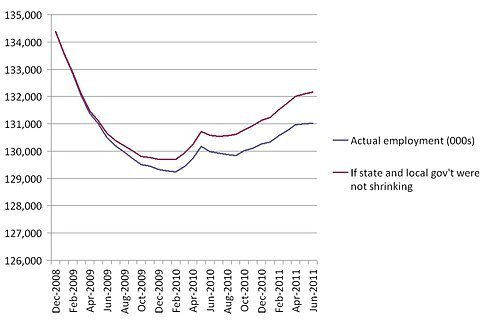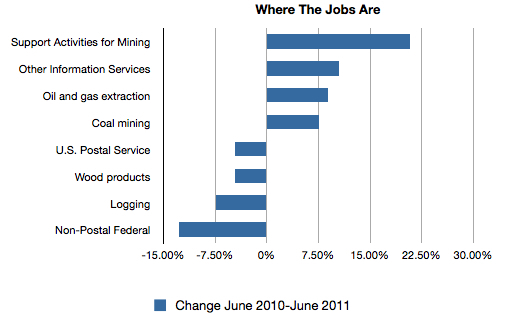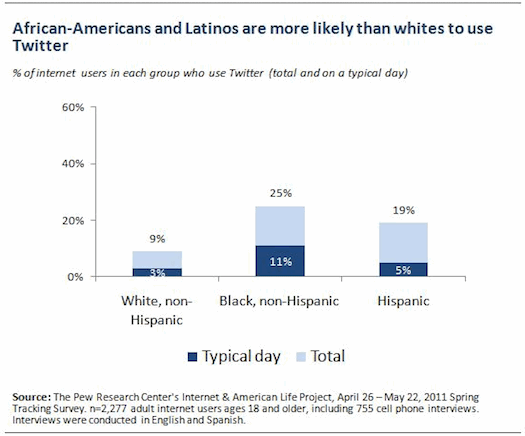Matthew Yglesias's Blog, page 2248
July 9, 2011
Summer Camp Cost Inflation
Oftentimes, I think you can shed some light on important public policy issues by looking at issues that aren't at all important. For example, instead of thinking about the skyrocketing cost of college, consider the skyrocketing cost of summer camp:
When Mickey Black's grandfather, Hughie, opened Pine Forest in 1931, a two-month summer session here cost $85, about $1,264 in today's dollars. The Black family's camp survived the Great Depression and World War II, polio scares and hurricanes, Vietnam and Woodstock, its own Great Dining Hall Fire of 1984, 9/11 and now the Great Recession.
But in an age of hyperparenting, Facebook and Twitter, texting and sexting, running a traditional camp is far more complicated and expensive than it used to be. This year, a seven-week session at Pine Forest costs $9,700, a big-ticket price for a rustic canoe-and-campfire experience. (Some camps charge even more.)
That's a 767% real increase in the price and for what appears to be a reduced level of service. A "two month" session should contain about 61 days of camping. A "seven week" session is only 49 days, so you're only getting about 80 percent as much camp as you used to get. Whatever you think of this, it surely doesn't reflect the perverse consequences of government subsidies. Rather, over time attention has become increasingly expensive to provide. And people value it.


The Weak Economy, Not The Lack of Long-Term Budget Deals, Is Obama's Vulnerability
Mark Halperin's long speculative post about the debt ceiling endgame ends as follows: "And then it will fully dawn on Boehner and McConnell at the White House signing ceremony (likely as Obama is handing them their souvenir pens) that they were part of history, including part of the part where Obama was able to take off the table the single most damaging issue that could be used against him in 2012."
This kind of thinking seems dangerously prevalent in Washington. Like voters are standing around here in the summer of 2011 saying to themselves, "well life is pretty good in America under Obama, but I'm really concerned about the long-range CBO projections so I might vote against him." But that's nuts. Obama's vulnerable because conditions in the country right now aren't very good. The unemployment rate is high, real wages are flat, lots of people have negative equity in their homes, lots of near-retired people have seen their savings vanish, etc.


Now Really Isn't the Time To Cut Transportation Funding
By Matthew Cameron
Yesterday's jobs report has prompted another round of existential questioning among politicians and political pundits about how to address the nation's employment situation. A straightforward answer would seem to entail identifying a few particularly hard-hit sectors of the economy and adjusting federal policies that affect those sectors in a way that boosts employment. But Republicans in Congress are proposing a 35 percent cut to transportation funding in their six-year infrastructure bill, meaning there will be even less demand for construction workers at a time when the sector's unemployment rate remains 15.6 percent. Here's the Center for American Progress's Donna Cooper with the gory details:
Rep. John Mica (R-FL), chairman of the House Transportation Committee, proposes spending $230 billion on transportation over the next six years. That sounds like a lot, but it's less than the five-year transportation spending plan passed in 2005 when George W. Bush was president — and nearly $6 billion less than this year's investment in surface transportation, which is already 50 percent less than needed. [...]
[Mica's bill] doesn't call for a national infrastructure bank, despite evidence from Europe, Canada, and Asia that a superstructure like that enables wiser public and private infrastructure investments. While Republican leaders crow about ending waste in government, Mica's legislation fails to end politicized allocation formulas that impede delivery of funds where they are most needed. And he doesn't call for the revival of taxable federally subsidized bonds like Build America Bonds, which successfully attracted more than $55 billion in private investment in new state and local rebuilding projects at a very low cost of $566 million to the U.S. Treasury.
Transportation is an area where the government has tremendous potential to make a positive impact. Unlike other sectors such as retail or leisure and hospitality, hiring for infrastructure projects is directly influenced by government policy. After all, individual consumers don't pay construction companies to build new roads; governments do that. So if the U.S. wants better transportation infrastructure (it does) and fewer unemployed construction workers (it does), the government can simply hire more firms to complete more projects. For whatever reason, the House GOP has decided it wants to do the opposite.


July 8, 2011
Reduce The Debt By Selling Congressional Parking Lots

I've long been infuriated by the quantity of valuable DC land currently being used as surface parking lots for congressional staff. But exactly how much free parking is there? Lydia DePillis reports that it's a secret:
Seriously: After taking note of the many expanses of concrete available for Hill staffers across the Capitol complex, I asked the Committee on House Administration how many parking spaces it oversees, and how many permits it hands out (each office gets a certain number to divvy up). Apparently, that information would imperil the security of…I'm not sure what exactly. But something.
Selling this land to developers would reduce the national debt in a non-austerity kind of way. Rather than sucking economic activity out of the economy, it would spur activity as at least some of the land would be put to use as construction sites. Much of it would presumably continue to be used as parking lots for a while, with market rate pricing. Meanwhile, congressional staff can get metro passes if we want to give them some kind of free transit benefit.


What Really Matters
I don't want to take it too seriously, but I think this Gallup data on who is and isn't expressing satisfaction with their lives helps us understand which dimensions of economic inequality in America do and don't matter:
[image error]
What you're seeing here is that being unemployed or being seriously poor is terrible. We ought to be working like crazy to reduce the number of people in that position. Beyond that, the gap between people making over $90k and the middle class is substantial, but it's nothing compared to the routine decline in life satisfaction associated with getting old. Having a marriage break up appears to be disastrous for your well-being, but it's not clear to me that there's a real policy lever here.


The High Price Of Austerity
David Leonhardt delivers with yet another way of looking at the impact of small government policies on our anemic recovery:

And this, I think, tends to understate the issue. As I've been saying for some time now, on housing we've now undershot on the low side. At one point, we stopped building new homes because we had plenty of homes. Now we're still not building homes even though the population has grown plenty because too many people can't afford to go out and live in one. But if we had these extra million state and local workers that Leonhardt's talking about, several hundred thousand of them would be occupying currently non-existent homes and we'd have less construction unemployment. What's more, all those employed construction workers and librarians and firemen would be shopping at stores and eating at restaurants. That would mean more cashiers, more cooks, more truck drivers, etc.


Mining And Blogging Are Winning The Future
Matt Cameron took a look at the fastest growing and fastest shrinking BLS occupational sub-categories:

Other Information Services includes "publishing and/or broadcasting content exclusively on the Internet," thus bloggers such as myself are in good shape along with people engaged in various forms of mining. Federal workers and people engaged in wood-related activity are, by contrast, shedding jobs.


The Challenge Of Governance In South Sudan

While we continue to debate over whether or not to massively roll back the welfare state, Jeffrey Gettleman's reporting from the new nation of South Sudan reminds us that more than big government or small government, what matters is government that functions at all:
Ethnicity is a consistent fault line here. The government is dominated by the Dinka, the biggest group in southern Sudan, and some of the toughest rebel armies are commanded by members of the Nuer, a historic rival.
"This is just tribal fighting," Mustafa Biong Majak, a South Sudan government spokesman, said with a dismissive wave of his hand, arguing that the clashes posed no threat to stability. "Let them die."
But many people here fear that after the glow of independence wears off, the Nuer and the Dinka, who fought viciously during the north-south civil war, will become locked in conflict again. And even within the Dinka-dominated government forces, there are deep problems. Government troops routinely take sides in local land disputes and battles over cattle, and recently soldiers have been hijacking United Nations trucks hauling food. Hunger is yet another challenge, with more than 3 million people in South Sudan, nearly 40 percent of the population, needing food aid to survive.
Public choice considerations are always relevant. But at the same time, when you look around the world in a serious way, you see a great deal of variety in government performance. A crucial issue, at all levels of governance quality, is how to make public institutions function well not to simply point to bad stories and go "well, you see, that's what you get."


Stuff White People Dislike: Twitter
Kay Steiger has the goods:

I wonder how much that just reflects the fact that non-Hispanic whites are so much older than others.


Paul Tough Calls For Edu-Peace
Via an approving Dana Goldstein, Paul Tough issues a call for peace on the education reform wars:
The reformers' policy goals are, in most cases, quite worthy. Yes, contracts should be renegotiated so that the best teachers are given incentives to teach in the poorest schools, and yes, school systems should extend the school day and school year for low-income students, as many successful charter schools have done. But these changes are not nearly sufficient. As Paul Reville, the Massachusetts secretary of education, wrote recently in Education Week, traditional reform strategies "will not, on average, enable us to overcome the barriers to student learning posed by the conditions of poverty." Reformers also need to take concrete steps to address the whole range of factors that hold poor students back. That doesn't mean sitting around hoping for utopian social change. It means supplementing classroom strategies with targeted, evidence-based interventions outside the classroom: working intensively with the most disadvantaged families to improve home environments for young children; providing high-quality early-childhood education to children from the neediest families; and, once school begins, providing low-income students with a robust system of emotional and psychological support, as well as academic support.
I agree with this, but I think that as with most peace proposals on this front, it founders a bit on the division of labor question. I, Matt Yglesias, am a general purpose political blogger. When asked about K-12 education, I usually offer "reformy" answers. When asked about preschool, I'm for spending more money on it. When asked about nutrion assistance for poor families, I'm for it. When asked about Medicaid, I'm for it. I'd even go beyond Tough and say that housing and transportation policy have an important role to play, and I write about those things too. And by the same token, President Obama has offered an agenda of universal health care and stepped up anti-poverty spending and more early childhood investments and reform to the transportation and housing sectors. But when people talk about "reformers" they're usually not talking about me. They're talking about Michelle Rhee & Kaya Henderson in DC, or Joel Klein in New York, or Arne Duncan. These people, however, have jobs that are just about managing school systems. If their ideas about managing school systems are correct, then they're correct. And Tough seems to be saying that they are correct.


Matthew Yglesias's Blog
- Matthew Yglesias's profile
- 72 followers



